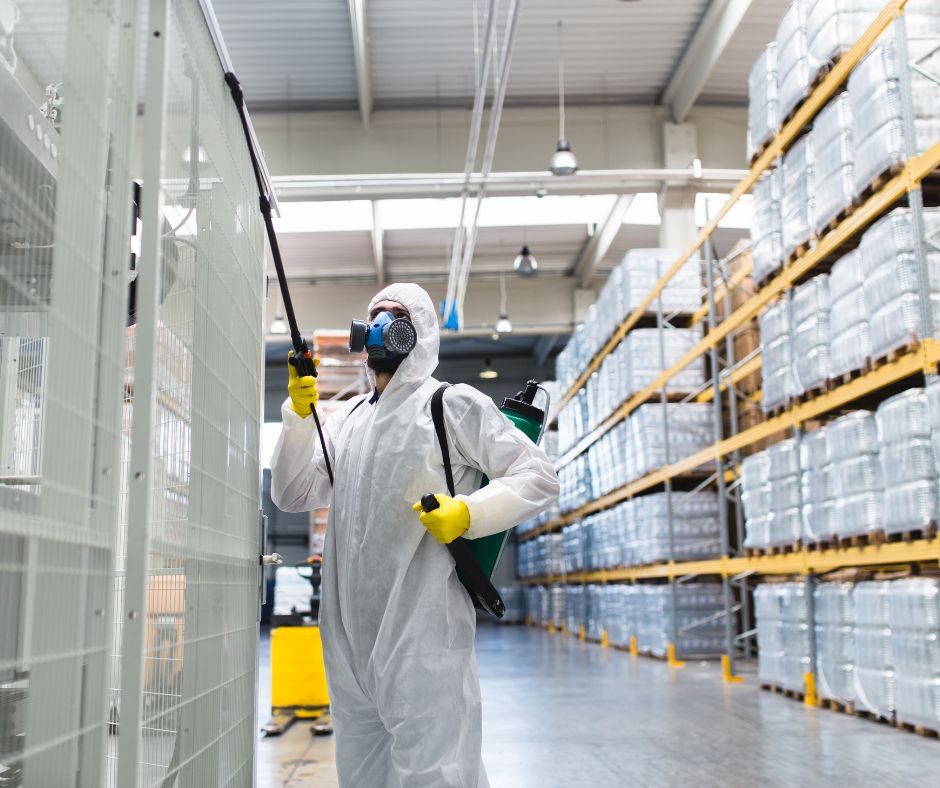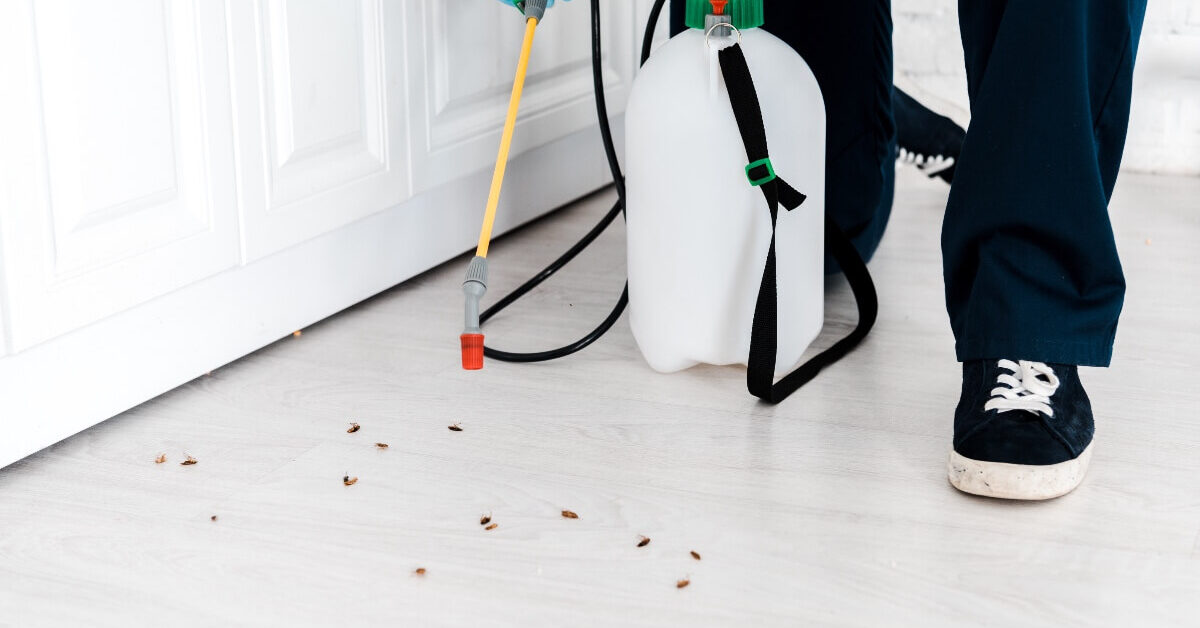Cost-effective and Trusted Exterminator in Port Charlotte for All Your Pest Control Issues
Cost-effective and Trusted Exterminator in Port Charlotte for All Your Pest Control Issues
Blog Article
Find Out About the Newest Breakthroughs in Bug Control and Just How to Carry Out Effective Treatment Solutions
Recently, the area of bug control has observed significant advancements, driven by the need for sustainable and efficient treatment options. Ingenious techniques such as Integrated Pest Administration (IPM) incorporate green techniques with innovative innovation, enhancing both effectiveness and ecological obligation. Moreover, the combination of smart innovations and do it yourself methods has equipped people to deal with pest problems more successfully. As we discover these developments, it ends up being vital to comprehend just how best to carry out these approaches in numerous setups to achieve optimal results. The implications for insect monitoring practices might be transformative.
Eco-Friendly Parasite Control Options
Recently, the need for environment-friendly pest control choices has actually risen as businesses and house owners alike seek lasting choices to standard chemical treatments. This shift is driven by expanding environmental understanding and a desire to reduce the health and wellness dangers related to artificial pesticides.

Eco-friendly pest control techniques include a variety of strategies that prioritize using all-natural substances and practices. Integrated Parasite Monitoring (IPM) is one such strategy, integrating biological, social, and mechanical strategies to take care of bug populaces while lowering dependence on chemicals (Wildlife removal services). This all natural approach emphasizes prevention through habitat control and the intro of all-natural killers, thus cultivating a balanced community
One more prominent alternative is using botanical pesticides obtained from plants, which tend to be less dangerous to non-target microorganisms. Products like neem oil and diatomaceous earth have gotten traction for their performance in controlling pests while positioning minimal dangers to human health and wellness and the environment.
Furthermore, exemption techniques, such as sealing entrance factors and keeping sanitation, play a critical duty in eco-friendly insect monitoring. By adopting these sustainable practices, businesses and individuals can effectively manage bugs while advertising a healthier earth for future generations.
Smart Innovation in Parasite Administration
Development is improving the landscape of pest administration, with smart innovation emerging as a critical pressure in enhancing effectiveness and efficiency - Wildlife removal services. The integration of Internet of Things (IoT) tools, artificial intelligence (AI), and data analytics is reinventing exactly how parasite control professionals approach problems
Smart catches outfitted with sensing units can discover pest activity in real-time, sending instant informs to drivers. This permits prompt actions, minimizing damage and lowering the requirement for extensive therapies. In addition, AI algorithms analyze historical information to predict bug behavior, making it possible for positive interventions based on environmental conditions and problem patterns.
Drones and computerized lorries are additionally playing a considerable duty in bug administration, providing airborne analyses of big locations, identifying hotspots, and also dispersing targeted therapies. These innovations not just simplify operations however additionally boost security by limiting human direct exposure to potentially unsafe chemicals.
Additionally, mobile applications equip customers to keep track of pest activity and gain access to professional suggestions, cultivating a joint approach to pest monitoring. On the whole, the fostering of clever modern technology is establishing a brand-new criterion in bug control, stressing data-driven choices and lasting techniques that eventually benefit both specialists and home owners alike.
Integrated Parasite Management Techniques
Integrated Insect Administration (IPM) utilizes an alternative technique to pest control, combining different approaches to effectively handle insect populations while reducing dangers to human wellness and the atmosphere. IPM rotates around comprehending the pest life cycle, their natural opponents, and the community in which they grow.
One of the basic parts of IPM is monitoring pest populations via routine evaluations and data collection. This enables the identification of parasite thresholds, identifying when intervention is essential. Cultural techniques, such as plant turning, sanitation, and habitat adjustment, are vital in decreasing pest occurrence and advertising plant health and wellness.
Mechanical controls, including obstacles and catches, are likewise vital in IPM. These methods can literally get rid of or discourage bugs without making use of chemicals. When essential, the judicious application of chemical controls is used, concentrating on targeted therapies that reduce environmental effect.
Education and collaboration among stakeholders, consisting of farmers, pest control experts, and the area, are important for the successful implementation of IPM methods. By prioritizing lasting practices, IPM not only article addresses pest issues but also promotes a much healthier ecological community.
Biological Control Methods
Numerous organic control methods are increasingly recognized for their efficiency in handling bug populations while promoting eco-friendly equilibrium. These strategies harness all-natural predators, bloodsuckers, and virus to minimize pest numbers without counting on artificial chemicals. The introduction of ladybugs can successfully manage aphid populations, while nematodes target soil-dwelling pest larvae.
In addition, using microbial pesticides, such as Bacillus thuringiensis (Bt), provides an eco-friendly alternative for taking care of caterpillar bugs. These products especially target pest types, lessening damage to valuable insects and pollinators. Conservation biological control stresses improving habitats for all-natural enemies, such as birds and beneficial insects, therefore urging their existence in agricultural systems.
Study continues to disclose ingenious strategies within this field, such as making use of scents to interfere with pest mating patterns or the advancement of biocontrol agents via genetic engineering. Implementing these techniques can bring about sustainable insect administration techniques that minimize the reliance on chemical interventions, ultimately promoting healthier environments. As awareness of these strategies grows, they are becoming important components of integrated parasite monitoring (IPM) strategies, offering an equilibrium in between efficient bug control and ecological stewardship.
Do It Yourself Insect Control Solutions
As property owners seek effective ways to tackle insect concerns, do it yourself bug control solutions have gained appeal for their access and cost-effectiveness. These techniques encourage individuals to address problems making use of conveniently available materials and strategies, commonly without the need for expert treatment.

Additionally, maintaining appropriate cleanliness and routine evaluations can protect against insect entrance and nesting (Wildlife removal services). Basic methods, such as securing fractures, getting rid of food resources, and decluttering, can substantially lessen insect populaces. Catches, both homemade and readily readily available, can also offer reliable solutions for monitoring and controlling particular parasites like insects or rodents

Final Thought
The combination of green bug control options, smart innovation, and innovative management approaches presents an extensive strategy to reliable parasite monitoring. By accepting Integrated Pest Monitoring (IPM) and using organic control techniques, together with DIY solutions, lasting and accountable pest control can be attained.
Environmentally friendly pest control methods include an array of techniques that focus on the usage of natural materials and techniques. Integrated Insect Management (IPM) is one such approach, combining organic, social, and mechanical tactics to handle pest populaces while decreasing reliance on chemicals. As understanding of these techniques expands, they are coming to be essential components of integrated pest management (IPM) strategies, using a balance between effective insect control and ecological stewardship.
The assimilation of environment-friendly parasite control options, smart technology, and ingenious management approaches offers a thorough technique to efficient pest administration. By welcoming Integrated Bug Administration (IPM) and using organic control methods, alongside Do it yourself services, sustainable and responsible pest control can be achieved.
Report this page